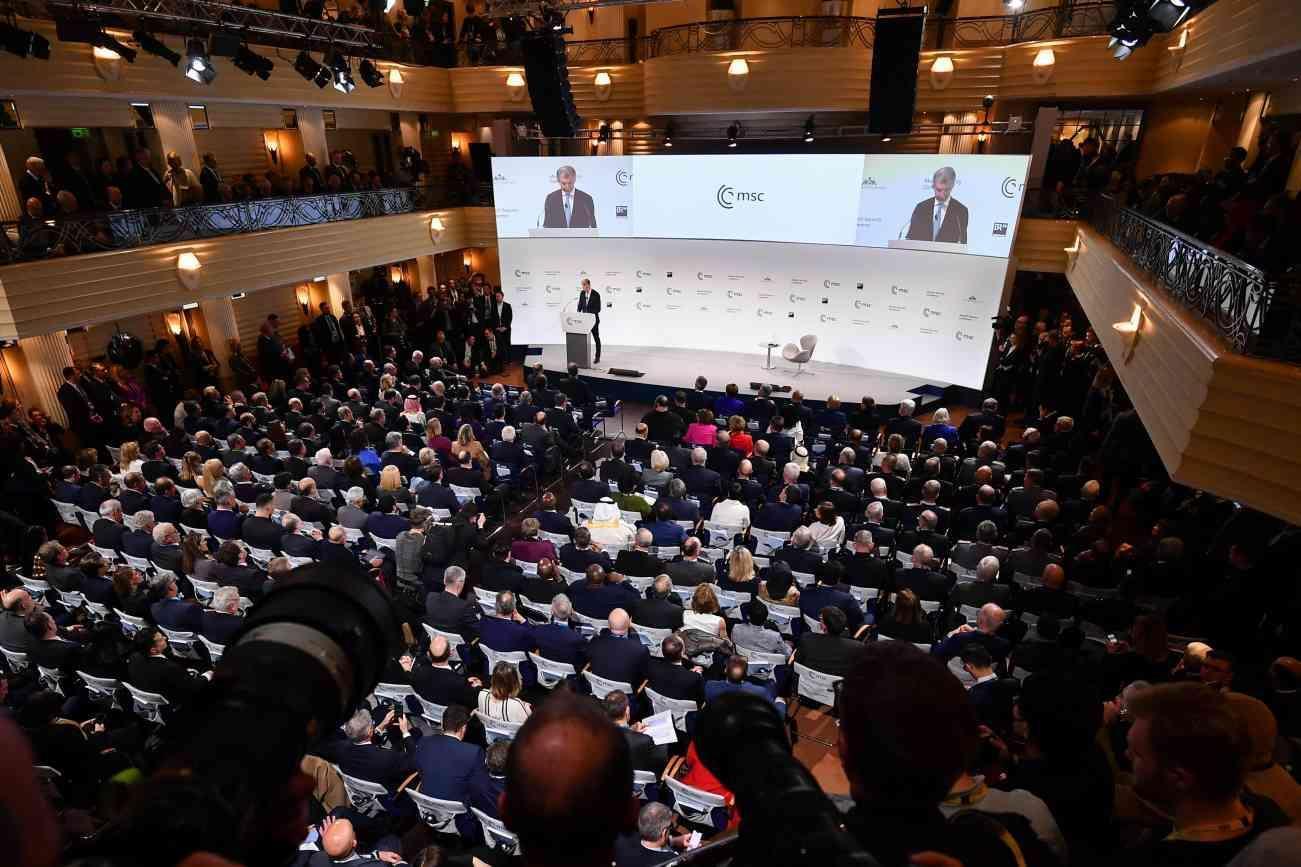
European powers on Feb. 17 vowed to intensify support for Ukraine as it battles to repel Russia, with France's president underlining at a major security conference that the time was not ripe for talks with Moscow.
Days ahead of the one-year anniversary of Russia sending its forces into Ukraine, Moscow chalked up a small gain in its grinding offensive.
The head of Russian mercenary group Wagner claimed the capture of a village near Bakhmut - the eastern city that is the scene of the longest and bloodiest battle of the war so far.
Later Friday, White House National Security Council spokesman John Kirby acknowledged Russia had made some "incremental gains in and around Bakhmut". But the city was "of no real strategic value", he said.
"We estimate now that Wagner has suffered more than 30,000 casualties, including approximately 9,000 killed in action" he added, with half of the dead killed since mid-December.
Ukraine's President Volodymyr Zelensky opened the Munich Security Conference with an impassioned plea for allies to speed up support, arguing lives were at stake.
"We need speed - speed of our agreements, speed of our delivery... speed of decisions to limit Russian potential," he said.
French President Emmanuel Macron joined in the call for allies to "intensify our support" for Ukraine to aid its forces in launching a counter-offensive.
"It is not the time for dialogue because we have a Russia which has chosen war, which has chosen to intensify the war, and which has chosen to go as far as committing war crimes and to attacking civilian infrastructure," he said.
France was ready for a "prolonged conflict", he added, while insisting that this was not what he wanted.
Chancellor Olaf Scholz insisted that German support was "designed to last", and urged allies to speed up deliveries of heavy tanks promised to Ukraine.
The conference in Munich is also being attended by US Vice President Kamala Harris and Secretary of State Antony Blinken, China's top diplomat Wang Yi and NATO chief Jens Stoltenberg.
Russian delegates including Foreign Minister Sergei Lavrov, a regular visitor in the past, were not invited.
Scholz's pleas for allies to step up deliveries of tanks underlined a recent reversal of his political fortunes.
Up until last month, he was facing accusations of foot-dragging over his reluctance to permit delivery of the German-made Leopard tanks to Ukraine, despite increasing pressure from Kiev.
Berlin finally agreed to allow the armaments, widely used in Europe, to be sent to Ukraine, pledging to deliver some of the most modern ones from its own military stocks.
Under German law, Berlin must give permission for other countries using the tanks to re-export them.
Now, however, it is struggling to persuade allies to follow suit.
"Those who can send such battle tanks should really do so now," Scholz told the conference, adding that he would be "intensively campaigning" to get allies to move on the issue.
Scholz and Macron later held talks with Polish President Andrzej Duda on the sidelines, the German leader hailing the "good cooperation" between the trio in providing support for Ukraine.
In his address, Zelensky reiterated his ambitions for Ukraine to join the European Union and NATO. Ukraine was recently granted candidate status for the EU, but full membership is a long way off.
Speaking at a panel discussion, Polish Prime Minister Mateusz Morawiecki backed Ukraine's drive to join the bloc. The "normal route to accession" should be abandoned given Kiev's "extraordinary" position, he argued.
"We need Ukraine as part of the European Union and as part of NATO eventually as well," he said.
"From our point of view the quicker the better," he said.
US-China ties are also in focus at the gathering, with tensions sky-high after Washington shot down an alleged Chinese surveillance balloon over US territory.
With high-level US and Chinese delegations in town, there has been speculation of talks on the sidelines to ease tensions.
The huge white balloon from China was spotted over a series of secret nuclear weapons sites earlier this month, before being shot down just off the eastern US coast.
The incident prompted a diplomatic rift, with Blinken cancelling a rare China visit. Beijing, however, says the balloon was just a stray weather research craft.